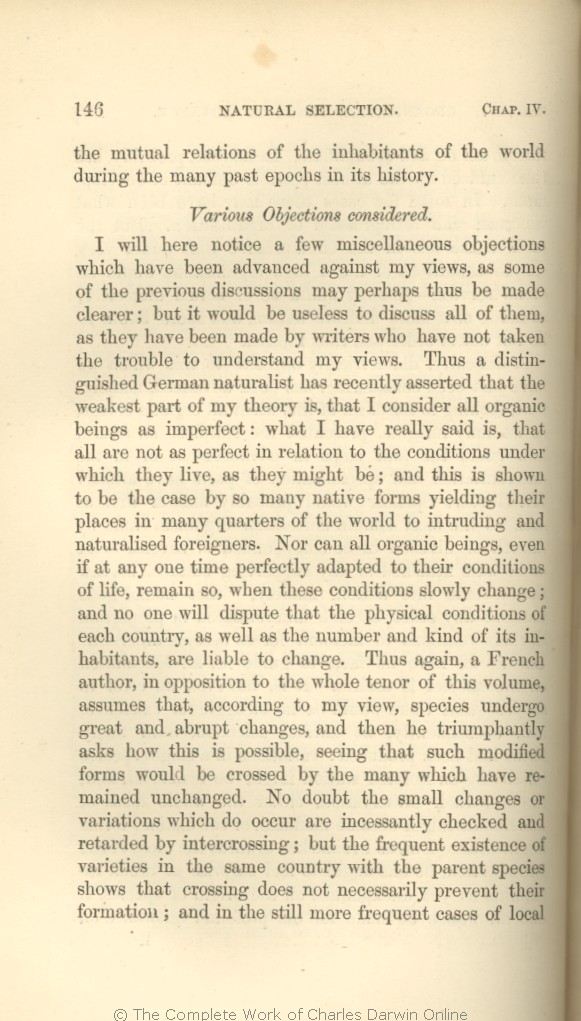for our profound ignorance on the mutual relations of the inhabitants of the world
during | during 1861 1866 1869 | | at 1872 |
| many past epochs in its history. 1861 1866 |
| past epochs in its history. 1869 |
| present time, and still more so during past ages. 1872 |
|
Various
|
Various
1866 | |
Various
1869 |
|
Objections
1866 | |
Objections
1869 |
|
considered. 1866 | |
considered.
1869 |
|
I will here notice a few miscellaneous objections which have been advanced against my views, as some of the previous discussions may perhaps thus be made
clearer; but it would be useless to discuss all of them, as they have been made by writers who have not taken the trouble to understand my views. | clearer; but it would be useless to discuss all of them, as they have been made by writers who have not taken the trouble to understand my views. 1866 |
| clearer. 1861 |
| clearer; but it would be useless to discuss all of them, as many have been made by writers who have not taken the trouble to understand my views. 1869 |
| under which they live, 1866 |
| OMIT 1869 |
| yielding their places in many quarters of the world 1866 |
| in many quarters of the world yielding their places 1869 |
| and naturalised foreigners. 1866 |
| foreigners which have become naturalised. 1869 |
| at 1866 |
| they were at 1869 |
| and 1866 |
| unless they likewise change; and 1869 |
| change. 1866 | |
change.
1869 |
|









